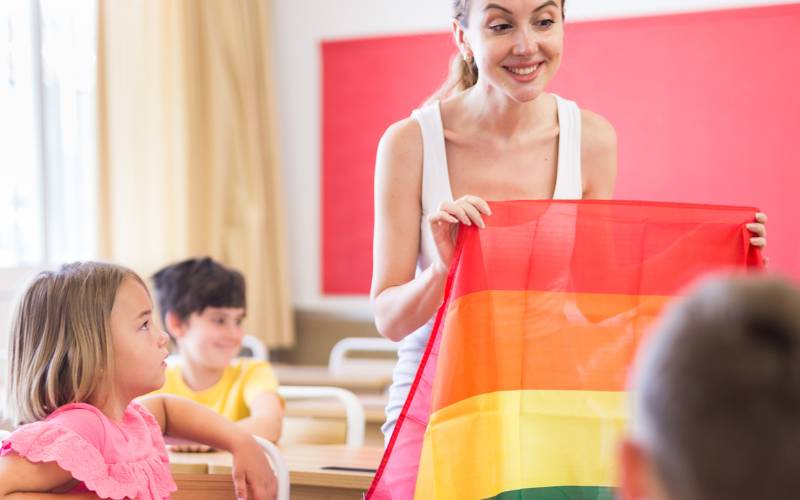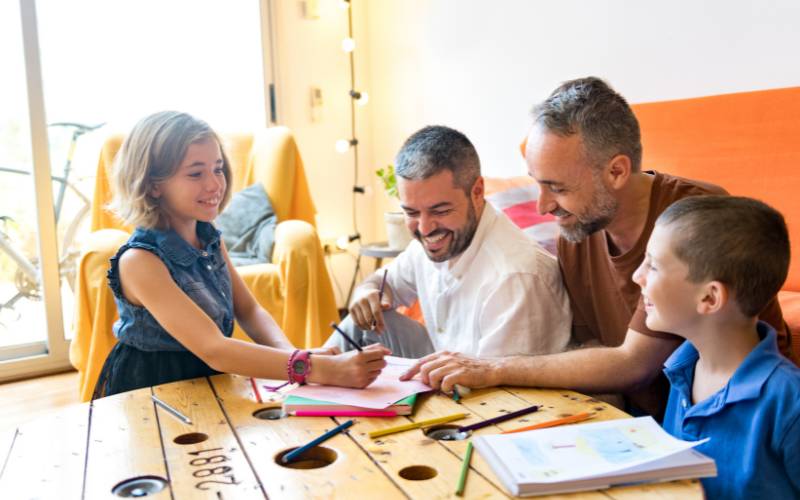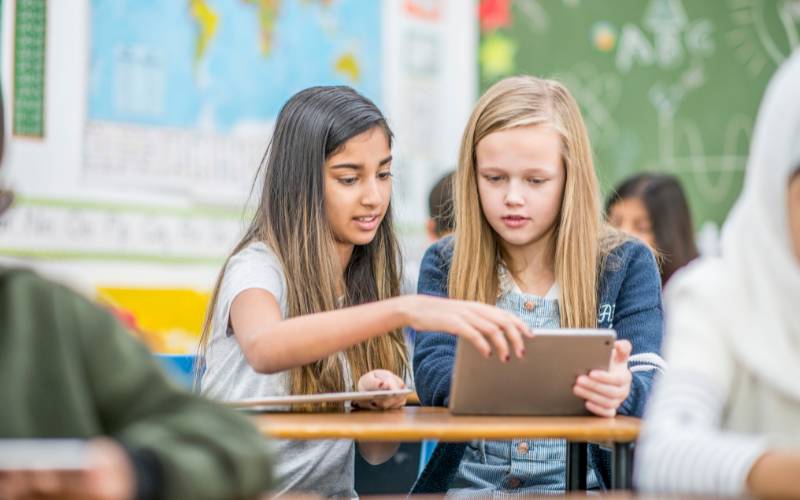The Importance of LGBTQ+ Education and Safe Spaces
Culture
By Diane Sherron
LGBTQ education, also known as LGBTQ+ education or queer education, refers to the process of providing comprehensive and inclusive information about lesbian, gay, bisexual, transgender, and queer (LGBTQ) individuals, identities, history, and issues. The aim of LGBTQ+ education is to foster understanding, acceptance, and respect for the community and also to address discrimination, prejudice, and stigmatization based on gender identity, gender expression, and sexual orientation.
What Defines LGBTQ+ Education?
Key components of LGBTQ+ education include:
- Inclusive Curriculum
- Anti-Bullying Programs
- Gender Diversity
- History and Contributions
- Sexual Health Education
LGBTQ+ education and safe spaces are vital for creating a world where individuals can thrive, irrespective of their gender identity or sexual orientation. Overall, it helps individuals connect with others, develop a sense of belonging, and work towards a world where everyone can thrive and be valued for their authentic selves. LGBTQ+ education and safe spaces are of utmost importance in creating a more inclusive and accepting society. Here are some key reasons why they matter.

Image source: Canva
Fostering Understanding and Acceptance
A great way of making the lives of LGBTQ+ students easier is by giving them the opportunities to take part in queer pride events. To complete their school papers and essay writing assignments, students can get research paper help online. LGBTQ+ education helps raise awareness and understanding of diverse sexual orientations, gender identities, and gender expressions. It dispels myths and stereotypes, promoting acceptance and respect for all individuals.
Reducing Discrimination and Bullying
Safe spaces in educational settings provide a supportive environment for students, teachers, and staff members in the community. They help combat discrimination, bullying, and harassment based on sexuality or gender fluidity. Safe spaces encourage open dialogue about LGBTQ+ topics, creating opportunities for discussions on diversity, human rights, and equality. Education about these issues also challenges homophobia and transphobia by promoting empathy, compassion, and solidarity.
Mental Well-being and Health
Safe spaces and inclusive education contribute to the mental well-being and health of people in the LGBTQ+ community. When they feel accepted and supported, they are less likely to experience anxiety, depression, or other mental health challenges related to societal stigma. Safe spaces foster a culture of respect for diversity in all its forms, creating a more inclusive and harmonious community.

Image source: Canva
Creating Inclusive Curriculum
Incorporating LGBTQ+ perspectives into educational curricula helps students see themselves reflected in the materials they study, enhancing engagement and representation. Inclusive education helps create a generation of allies who stand up against discrimination and support queer rights. It is a step towards achieving social justice and equality for everyone, regardless of their sexuality or gender identity.
Building a Safer Society
Safe spaces and LGBTQ+ education contribute to building a safer society for everyone, free from discrimination and prejudice. Education can challenge harmful societal norms and advocate for more inclusive policies and practices. By recognizing individuals from the community's contributions and achievements, education helps challenge negative stereotypes and provides positive role models.
Countering Exclusion and Isolation
LGBTQ+ education raises awareness about various sexualities as well as gender identities. By teaching about community experiences and issues, it helps dispel misconceptions and prejudices, fostering understanding and acceptance among individuals. Safe spaces offer a refuge for individuals who may face exclusion and isolation elsewhere. They provide a sense of belonging and community and protect the information of closeted individuals.

Image source: Canva
Influencing Social Norms
Education can challenge harmful societal norms and advocate for more inclusive policies and practices. It raises awareness about diverse sexual orientations, gender identities, and experiences. LGBTQ+ education challenges the lack of understanding that often perpetuates stereotypes and prejudices. Providing accurate information about queer individuals and issues also helps dispel myths and misconceptions that contribute to negative social norms.
Final Thoughts
LGBTQ+ education is essential for promoting a more inclusive and fair community. It helps create a safe and more accepting atmosphere for LGBTQ+ people, reduces discrimination and harassment, and empowers students to be supporters and advocates for the rights of all. By incorporating queer education into school curricula and promoting a culture of inclusivity, academic organizations play a vital role in fostering a more inclusive society for everyone, irrespective of their sexuality or gender identity.
Author’s Bio
Diane Sherron
Diane Sherron is a passionate advocate for inclusive education and social equality. With a profound dedication to promoting understanding and acceptance, she is a pioneer of change in LGBTQ+ education. Diane holds a degree in Education with a specialization in LGBTQ+ studies and social justice. Her journey as an educator began with a commitment to challenge stereotypes and create a safe and supportive environment for all students, and she continues to work hard to date.
